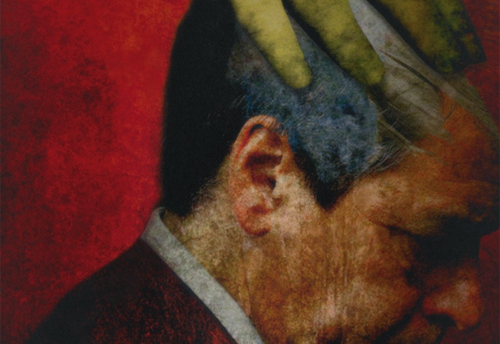1. Medel’s ambition is inspired by a civil society model: the principle goals of this association are to defend the independence of the judiciary power both with respect to any other power and to any particular interest, to ensure an unconditional respect for the values of democracy and the Rule of Law, to defend minority rights and divergent groups in perspective of social emancipation of the weakest.
Defend the independence of justice for the equality of citizens before the law.
2. The effectiveness of these rights depends on the people and institutions responsible for their application.
It is the role of the judiciary in particular to ensure fundamental rights and to prosecute criminal activity. In a crisis, the action of the administrative and financial courts is essential to ensure the legality and regularity of public resource allocation.
3. When justice is being misused by other powers- either political, economic or media – it deteriorates. Its independence is essential for equality of citizens before the law.
4.The Recommendation of the Committee of Ministers of the Council of Europe on the independence, efficiency and role of judges as well as the one on the role of public prosecution in the criminal justice system represent minimum of standards, which is vital for mutual trust between Member States magistrates.
5. This minimum is usefully supplemented by the opinions of the Advisory Councils of judges and prosecutors in Europe, particularly by the Bordeaux Declaration of 2009 (” Judges and prosecutors in a democratic society “) and the Magna Carta of Јudges, adopted in 2011.
6. To fight against crime and ensure the equality of all before the law, the prosecution must have, in all European states, the status of a judicial authority, as defined in the jurisprudence of the European Court of Human Rights.
7.To carry out their missions, the magistrates must have the appropriate resources and conditions provided by the state. The remuneration of magistrates must be of sufficient level to make them free from pressure. In this regard, the work of the CEPEJ highlights the worrying disparity in resources available to the judicial systems of European states.
8.Finally, the efficiency of justice could not be linked to the widespread market model. The generally accepted managerial tools focused on performance, productivity and efficiency requirements should not neutralize the basic principles of a fair trial.
Defend the social rights
9.In Medel’s view, the role of judges is considered to be particularly important when it comes to social matters such as the fight against social inequalities and the defence of the poor, because “between the rich and the poor, between the strong and the weak, it is liberty that oppresses and the law that liberates. “[1]
10. The Philadelphia Declaration, defining the goals and objectives of the International Labour Organization, stated in particular the following principles: work is not a commodity, freedom of expression and association are essential to a continuous progress, poverty is a danger to prosperity for everyone. Finally, all human beings regardless of race, religious beliefs or sex, have the right to pursue both their material and their spiritual development under conditions of freedom and dignity, of economic security and equal opportunity.
11. The European Social Charter, which 50th anniversary in 2011 celebrated the Council of Europe, guarantees housing, health, education, employment, legal and social protection, movement of persons and non-discrimination.
12. The Charter of Fundamental Rights of the European Union recognizes a set of personal rights, civil, political, economic and social benefits to EU citizens.
13.The current problems of Europe did not arise because of the implementation of these rights. However, they coincide with the lack of state control over the financial and criminal diversion of some resources. That is why the current economic crisis can not justify a reconsideration of social gains.
14. No economic freedom or competition rule should take priority over fundamental social rights and social progress. In case of dispute, the fundamental social rights should prevail. Transnational firms shall be effectively regulated.
Fight against corruption.
15.Plundering of the resources of the European Union and the Member states justifies the intensification of the fight against corruption. It is essential, in particular, to give full effect to the UN Convention against Corruption (Mérida Convention), Conventions of the Council of Europe against corruption in criminal and civil matters and the Brussels Convention regarding the fight against corruption involving officials of the European Union or Member States.
16.The fight against corruption and fraud should also be reinforced by implementing a policy against the tax havens and against financial opacity, especially by counteracting shell companies.
17.The creation of the European Public Prosecutor’s Office, proposed in 1997 and set out in the Treaty of Lisbon, must finally happen. The Spanish Presidency has proposed in 2010 to create a European Public Prosecutor’s Office which would initially be responsible for investigating fraud and speculation against the euro, then, in a second step, for investigating and initiating criminal proceedings against cross-border crimes such as human trafficking, drug trafficking or terrorism. This proposal should be implemented within the framework of enhanced cooperation.
18.Finally, the basic rules on the legal and criminal procedure must be unified and the mechanisms of criminal assets forfeiture and their restitution to civil society must be developed. Illegitimate debt shall be challenged.
Asseveration
19.Faced with a crisis, more than ever, justice must be able to safeguard promises given in the laws and conventions protecting fundamental rights.
20.The solution is not in the abandonment of rights, but in the mobilization for their defence. All European judges should mobilize the imaginative forces of law to emerge across Europe in order to create and safeguard the community of values based on freedom and equality of all in dignity and rights.
[1] Henri Lacordaire


